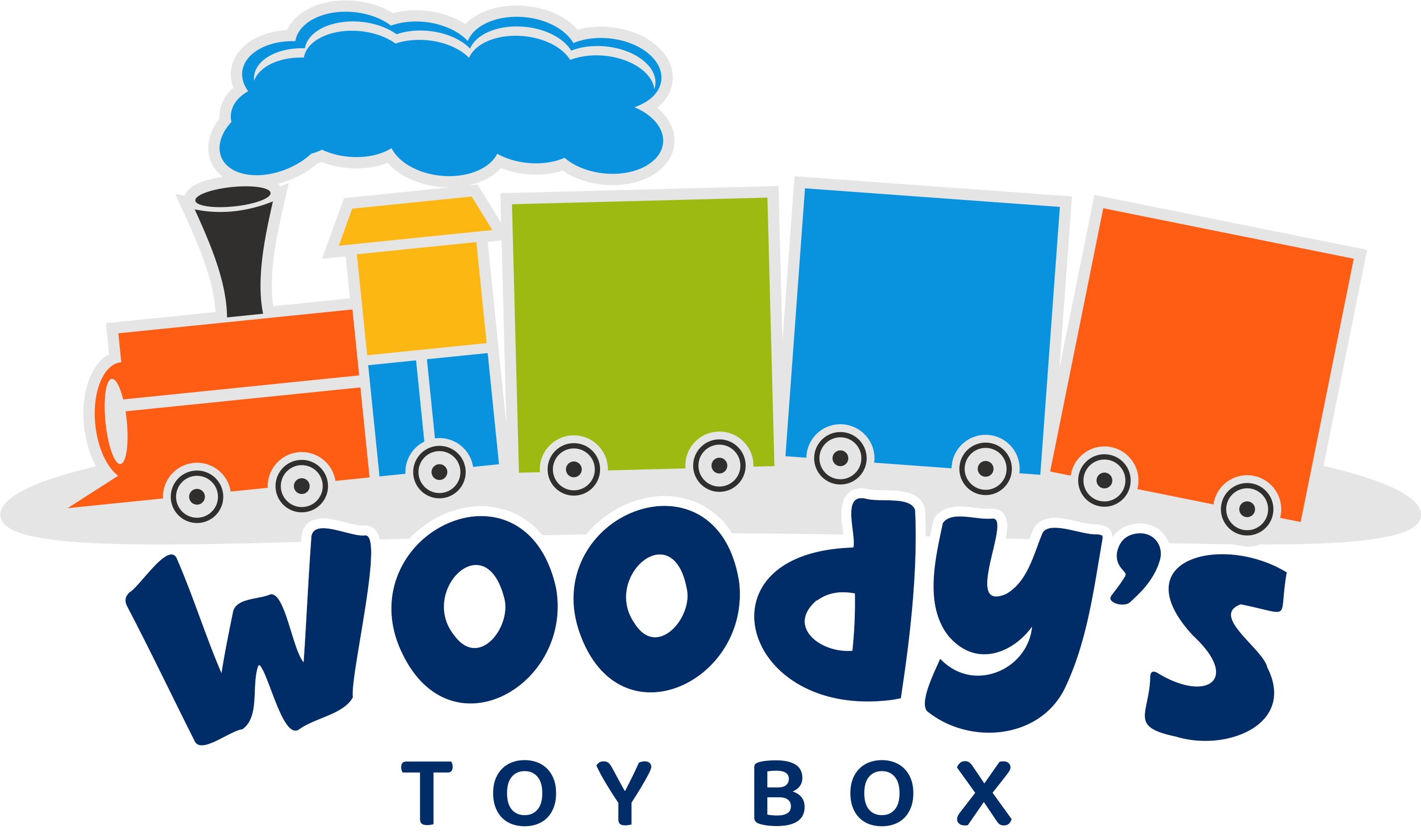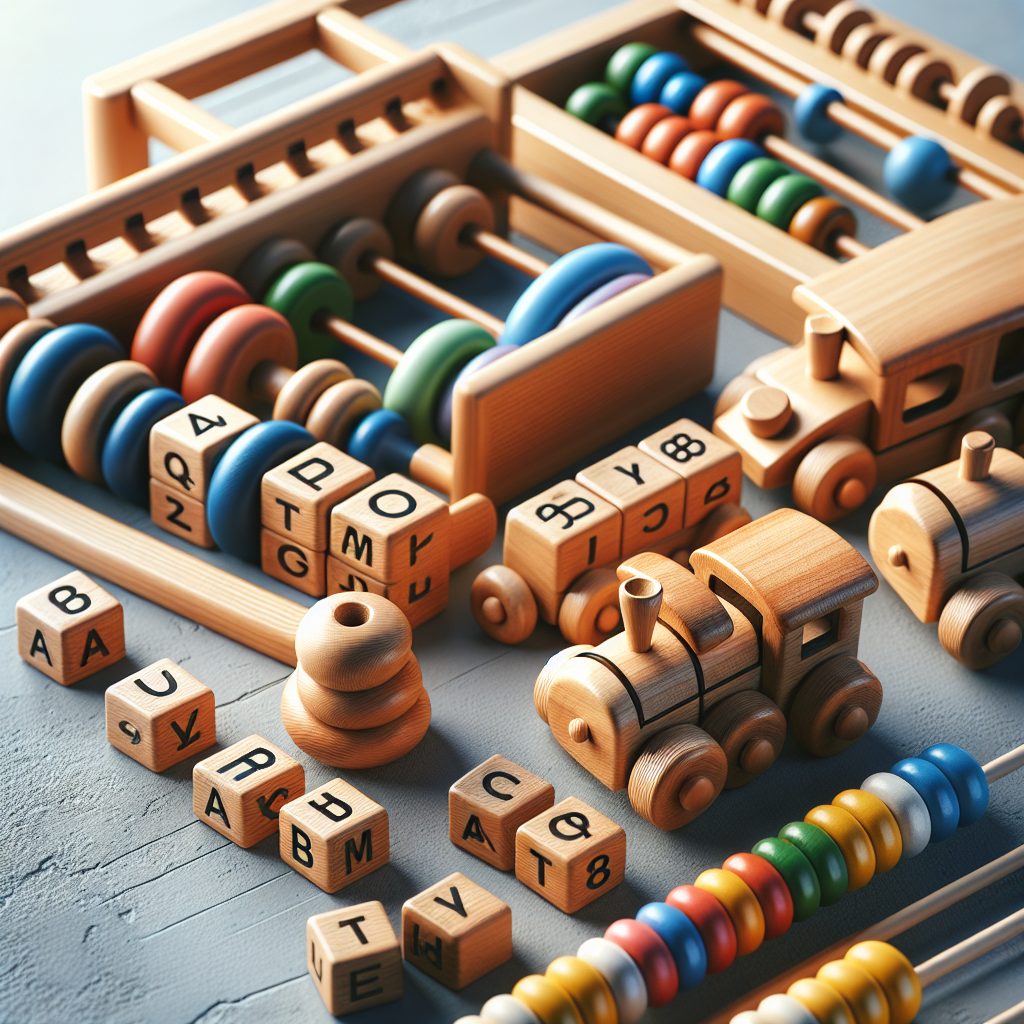Wooden toys have long been considered timeless treasures that provide countless hours of entertainment for children. However, what many parents may not realize is that these toys also serve as powerful tools for stimulating a child’s development and learning. With their natural textures, pleasant smells, and durable construction, wooden toys offer a unique sensory experience that engages a toddler’s senses in a way that plastic or electronic toys simply cannot match. Additionally, these toys often come in simple, open-ended designs that encourage imaginative play, problem-solving, and creativity.
One of the key impacts of wooden toys on a toddler’s development is their ability to foster fine motor skills. The tactile nature of these toys, such as wooden puzzles or stackable blocks, requires children to use their fingers and hands to manipulate and explore. By grasping, turning, and fitting the pieces together, toddlers develop hand-eye coordination, dexterity, and muscle strength. Furthermore, the absence of complex buttons or electronic features allows children to focus on the physical act of play, honing their concentration and attention span.
In the upcoming sections, we will delve into the specific benefits that wooden toys have on a toddler’s cognitive, social, and emotional development. From promoting problem-solving skills to encouraging social interaction and empathy, these toys have a profound impact on shaping a young child’s abilities and character. So, let’s dive in and discover the key takeaways of how best wooden toys can support your toddler’s growth and learning journey.
Key Takeaways
1. Wooden toys promote open-ended play and creativity, allowing toddlers to use their imagination and problem-solving skills.
2. These toys help develop fine motor skills, as toddlers manipulate and grasp the toys, enhancing their hand-eye coordination.
3. Wooden toys often have a sensory appeal, as they are made from natural materials and have varied textures, encouraging sensory exploration and stimulation.
4. Playing with wooden toys can enhance cognitive development by promoting logical thinking, spatial awareness, and cause-and-effect understanding.
5. Wooden toys are durable and eco-friendly, making them a sustainable and long-lasting option for toddlers’ play and learning.
Why Are Wooden Toys the Best Choice for Supporting Toddlers’ Development and Learning?
1. Safety and Durability
Wooden toys are known for their durability and safety compared to plastic or electronic toys. They are made from natural materials without harmful chemicals, ensuring a safe play environment for toddlers.
2. Sensory Stimulation
Wooden toys offer various textures, colors, and shapes that engage toddlers’ senses. They provide tactile experiences, encouraging children to explore different sensations and enhance their sensory development.
3. Imaginative Play
Wooden toys often have simple designs that allow toddlers to use their imagination and creativity. They can transform a wooden block into a car or a puzzle piece into a character, which promotes imaginative play and cognitive development.
4. Motor Skills Development
Playing with wooden toys requires physical manipulation, enhancing toddlers’ fine motor skills. From grasping and stacking blocks to fitting pieces into puzzles, these activities help develop hand-eye coordination, dexterity, and control.
5. Problem-Solving and Cognitive Skills
Wooden toys, such as shape sorters or construction sets, provide opportunities for problem-solving and critical thinking. Toddlers can learn to match shapes, assemble pieces, and solve puzzles, fostering cognitive development and logical reasoning.
6. Language and Communication
Wooden toys often feature letters, numbers, or symbols, promoting early language and communication skills. Toddlers can learn vocabulary, practice counting, and recognize symbols, which supports their linguistic development.
7. Social and Emotional Development
Wooden toys encourage social interaction, sharing, and cooperation among toddlers. Through pretend play, children learn to negotiate roles, express emotions, and develop empathy, fostering their social and emotional development.
8. Environmental Friendliness
Wooden toys are eco-friendly as they are made from sustainable materials. By choosing wooden toys, parents can teach toddlers about environmental responsibility and the importance of preserving nature.
What Are the Best Ways to Maximize Toddlers’ Development and Learning with Wooden Toys?
- Encourage open-ended play: Allow toddlers to freely explore and experiment with wooden toys, promoting creativity and problem-solving skills.
- Rotate toy selection: Introduce new wooden toys periodically to maintain toddlers’ interest and stimulate different aspects of their development.
- Engage in interactive play: Play alongside toddlers, showing them different ways to use the wooden toys and promoting social interaction.
- Use wooden toys for educational activities: Incorporate counting, letter recognition, or shape sorting into playtime to support cognitive development.
- Join playgroups or playdates: Encourage toddlers to play with peers using wooden toys, fostering social skills, sharing, and cooperation.
- Combine wooden toys with books: Reading stories related to the wooden toys can enhance language development and expand their imaginations.
- Create themed play setups: Set up play scenes with wooden toys, such as a farm or a city, to encourage storytelling and imagination.
Frequently Asked Questions:
1. What are the benefits of wooden toys for toddlers’ development and learning?
Wooden toys offer various benefits for toddlers’ development and learning. They help improve fine motor skills, creativity, problem-solving abilities, and hand-eye coordination. Additionally, wooden toys engage children’s imagination and promote open-ended play, leading to enhanced cognitive and social development.
2. Are wooden toys safe for toddlers to play with?
Yes, wooden toys are generally safe for toddlers to play with. Unlike plastic toys, wooden toys are typically made from natural materials and do not contain harmful chemicals such as BPA or phthalates. However, it is important to ensure that the wooden toys are free from sharp edges or small parts that could pose a choking hazard.
3. Which wooden toys are suitable for toddlers aged 1-2 years?
For toddlers aged 1-2 years, wooden toys that promote sensory exploration and cause-and-effect learning are ideal. Examples include shape sorters, stacking toys, puzzles with large pieces, and simple musical instruments like xylophones or drums.
4. How can wooden toys enhance a toddler’s creativity?
Wooden toys encourage open-ended play, allowing toddlers to use their imagination and creativity. They can transform a wooden block into a car or a dollhouse, creating endless possibilities for play. Wooden toys also often lack specific instructions or limitations, leaving room for children to explore and think creatively.
5. Do wooden toys require special maintenance?
While wooden toys do not require extensive maintenance, it is recommended to keep them dry and clean. Avoid exposing them to water for extended periods or leaving them in direct sunlight, as this could cause warping or discoloration. Regularly inspect the toys for any splinters or loose parts that may require sanding or repair.
6. Can wooden toys help toddlers develop problem-solving skills?
Yes, wooden toys can help toddlers develop problem-solving skills. Toys such as shape sorters or puzzles require children to analyze different shapes and figure out how they fit together. By experimenting and manipulating the wooden pieces, toddlers learn to problem-solve and think critically.
7. Are there any specific wooden toys that promote language development?
Yes, certain wooden toys can aid in the development of language skills. Alphabet blocks or wooden puzzles with letters can help toddlers recognize and learn the alphabet. Additionally, pretend play sets, such as wooden kitchen or tool sets, encourage language development as children engage in role-playing and storytelling.
8. Can wooden toys promote social interaction among toddlers?
Absolutely! Wooden toys can foster social interaction among toddlers. Activities like playing with wooden vehicles or dollhouses encourage cooperative play and sharing. By engaging with wooden toys together, toddlers learn how to communicate, negotiate, and interact with their peers, promoting social skills.
9. Are there any eco-friendly benefits to choosing wooden toys?
Yes, opting for wooden toys has eco-friendly benefits. Wooden toys are usually made from sustainable materials, like renewable wood sources, and are often more durable than plastic alternatives. By choosing wooden toys, you reduce plastic waste and contribute to a greener environment.
10. How can parents ensure the safety of wooden toys?
Parents can ensure the safety of wooden toys by purchasing them from reputable manufacturers who adhere to safety standards. Always check for quality craftsmanship, smooth finishes, and non-toxic paints or varnishes. Regularly inspect the toys for any wear and tear, and supervise toddlers during playtime to prevent accidents.
Final Thoughts:
When it comes to toddlers’ development and learning, wooden toys are an excellent choice. They provide numerous benefits, including the enhancement of fine motor skills, creativity, and problem-solving abilities. Furthermore, wooden toys foster language development, social interaction, and encourage environmentally-friendly choices. By opting for these timeless playthings, parents can create a safe and enriching environment that promotes their little ones’ holistic growth.
Investing in the best wooden toys for toddlers is not only a wise decision for their development but also a means of embracing simplicity in a world dominated by plastic. Wooden toys offer a nostalgic charm while providing countless opportunities for exploration and discovery. So, next time you’re considering toy options for your toddler, don’t forget the power of beautifully crafted wooden toys that stand the test of time.

